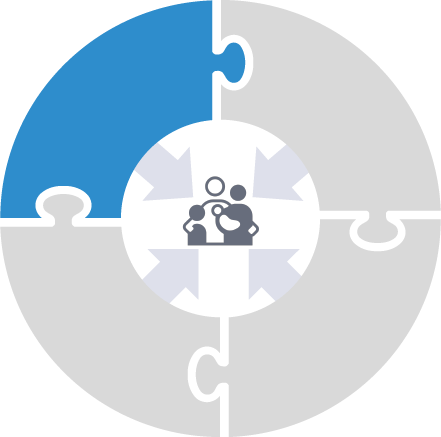Parent Mental Health

Health & Wellbeing
Services that address the development, physical health, and mental health of young children, their caregivers, and their relational wellbeing
IN THIS SECTION
General Mental Health
Parents may require mental health resources to address their own needs, separate from the needs of their children. Some parents may experience mental health challenges prior to giving birth and continue to struggle after the birth of their child. In other cases, parents' mental health needs arise after a child is born. Regardless of when they arise, a range of mental health concerns, such as depression, anxiety, and post-traumatic stress disorder, can interfere with parents’ day-to-day activities and ability to care for themselves and their child. Parents can support their mental health by cultivating habits that contribute to their overall wellbeing (such as exercising, maintaining a healthy diet, and practicing mindfulness). For parents who require additional assistance, connecting with a mental health professional either in person or virtually can help parents develop tools and skills for combating mental health concerns. Parents seeking to get in touch with mental health providers can ask for a referral from a primary care doctor, utilize their employer’s employee assistance program (if available), or call 211 to learn more about treatment options.
Equity Considerations
Stigma around mental health support is a barrier for many individuals, especially for parents/caregivers in need. Some parents choose not to seek help due to fear or embarrassment, but also due to lack of access to resources and high costs of services. Additionally, among male caregivers/parents there is an increased reluctance to seek mental health support due to this societal stigma.
Health & Wellbeing
Ages
Birth - 5 years
Usage
Geography
Statewide
Professionals
Psychologists, Counselors, Therapists, Social Workers, Psychiatrists, Primary Care Providers, Obstetrician/Gynecologist
Settings
Psychologist/Psychiatrist Offices, Primary Care Offices, Health Clinics
Oversight, Guidance, OR Regulation
Department of Public Health, Department of Mental Health
examples
Support for Anxiety, Mental Health Disorders, Insomnia, Depression, etc.
Health & Wellbeing
Ages
Birth - 5 years
Usage
Geography
Statewide
Professionals
Psychologists, Counselors, Therapists, Social Workers, Psychiatrists, Primary Care Providers, Obstetrician/Gynecologist, Midwife, Doula.
Settings
Psychologist/Psychiatrist Offices, Primary Care Offices, Health Clinics
Oversight, Guidance, OR Regulation
Department of Public Health, Department of Mental Health
examples
- Postpartum Depression Screening/Assessment
- Edinburgh Postnatal Depression Scale (EPDS)
Postpartum Depression
Postpartum depression is the onset of anxiety, sadness, difficulty bonding with the baby, or other strong emotions that can affect one or both parents after childbirth, although more closely studied with birth parents. This condition can make it difficult for parents to live their day-to-day lives and care for themselves and their baby.
A birth parent's obstetrician/gynecologist, midwife, or primary care provider may administer a postpartum depression screening as part of a routine postpartum check-up, or alternatively if a birth parent is showing any signs of severe depression or intense emotions more than two weeks after giving birth. Potential signs of postpartum depression include, but are not limited to:
- Feeling sad most of the day
- Withdrawing from family and friends
- Feeling disconnected from their baby
- Eating too much or loss of appetite
- Difficulty completing everyday tasks, including caring for their baby
- Feelings of guilt
- Feelings of hopelessness
- Excessive crying
- Fear of hurting oneself or their baby






